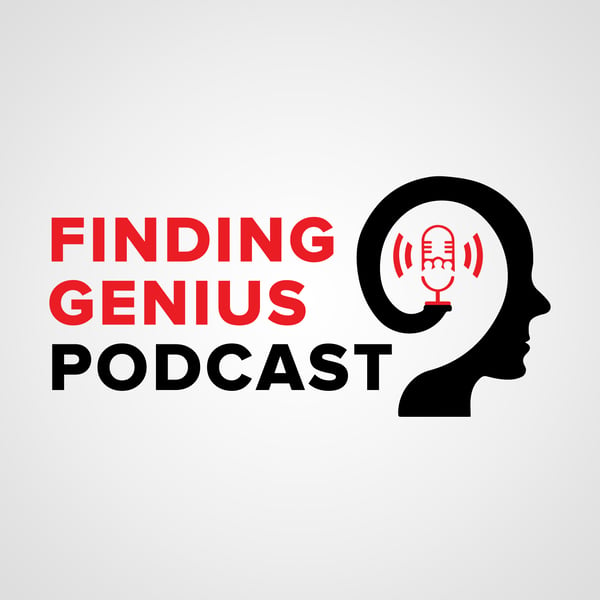A Cancer Cell's Advantage: Evolutionary Forces and Cancer Therapy
Finding Genius Podcast
Richard Jacobs
4.4 • 1K Ratings
🗓️ 19 April 2021
⏱️ 47 minutes
🧾️ Download transcript
Summary
"A tumor grows out of what's, at default, a state of cooperation," says researcher Carlo Maley. His research interest centers on the intersection of cancer and evolution and ways to use that understanding to treat cancer.
He shares fascinating studies and theories with listeners, exploring
- How growing a tumor in vitro into a spheroid allows researchers to study it as an organism,
- How cancer cells transitioning from epithelial to mesenchymal tissue enables mobility,
- What the "Big Bang" hypothesis means in cancer research, and
- Why understanding the low cancer rate in whales might help our own treatment.
Carlo Maley is an associate professor with the Biodesign Institute in the School of Life Sciences at Arizona State University and is the director of the Arizona Cancer and Evolution Center.
He specializes in cancer, evolution, and computational biology. He explains that cancer and evolution intersect on two different levels. First, within our bodies, cells are evolving and competing, mutating and surviving or failing. These processes can lead to the beginnings of cancer. Second, when doctors treat cancer with methods like chemotherapy, selective pressures again determine evolutionary forces, leading to resistance.
Professor Maley explores both of these levels in imaginative detail, explaining for example how bone marrow cancer growth and lung cancer may have different pressures and mechanism to progress through natural selection and competition. It's this competition of cells that creates phenomena such as removing a tumor leading to increased metastases. He explains that, in "many of these mutations. . . that affect the biology of a cell, actually, are going to be advantageous for the cell, but ultimately bad for the body." Yet, cancer cells are able to coopt cellular machinery that leads to cooperation. He touches on numerous puzzles, including the role of bacteria and microbiomes in some cancers, and shares some exciting research into adaptive therapies.
Listen in for an enlightening and hopeful view into cutting-edge cancer research.
Episode also available on Apple Podcasts: apple.co/30PvU9C
Transcript
Click on a timestamp to play from that location
| 0:00.0 | Forget frequently asked questions. |
| 0:02.0 | Common sense, common knowledge, or Google. |
| 0:05.0 | How about advice from a real genius? |
| 0:07.0 | 95% of people in any profession are good enough to be qualified in license. |
| 0:11.0 | 5%? |
| 0:12.0 | Go above and beyond. |
| 0:13.0 | They become very good at what they do. |
| 0:15.0 | But only 0.1% are real geniuses. |
| 0:18.0 | Richard Jacobs has made his life's mission to find them for you. |
| 0:22.0 | He hunts down and interviews geniuses in every field. |
| 0:25.0 | Sleep science, cancer, stem cells, ketogenic diets, and more. |
| 0:29.0 | Come the geniuses. |
| 0:30.0 | This is the Finding Genius Podcast. |
| 0:33.0 | The Richard Jacobs. |
| 0:36.0 | Quick note before we begin. |
| 0:39.0 | The Finding Genius Foundation, as part of the Finding Genius Podcast, |
| 0:42.0 | has recently completed a book about understanding viruses. |
| 0:46.0 | So the creation of this book was to interview 100 virologists, |
| 0:50.0 | ask them a lot of deep difficult questions, take the most difficult questions, |
| 0:54.0 | and then re-interview the top 25 or so, |
| 0:57.0 | and ask them the hardest questions I could think of. |
| 1:00.0 | And we compile that all into a book. |
... |
Please login to see the full transcript.
Disclaimer: The podcast and artwork embedded on this page are from Richard Jacobs, and are the property of its owner and not affiliated with or endorsed by Tapesearch.
Generated transcripts are the property of Richard Jacobs and are distributed freely under the Fair Use doctrine. Transcripts generated by Tapesearch are not guaranteed to be accurate.
Copyright © Tapesearch 2025.

